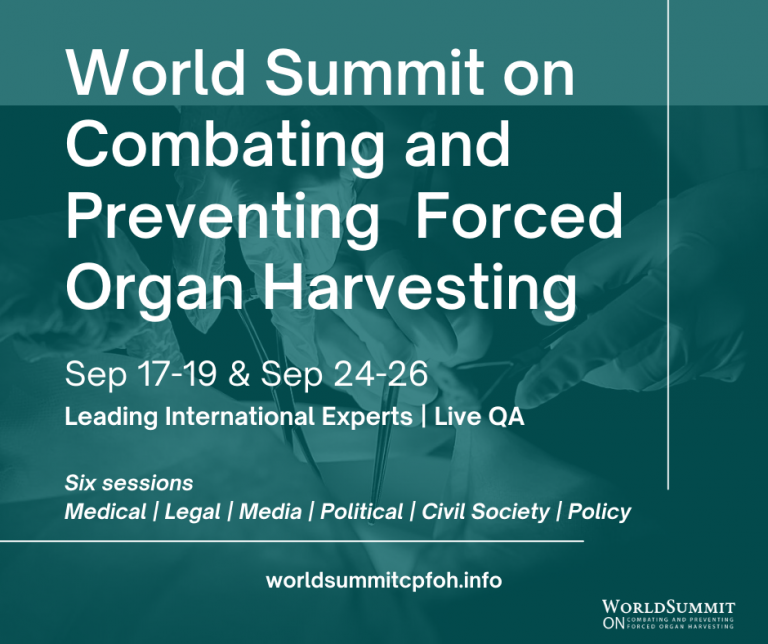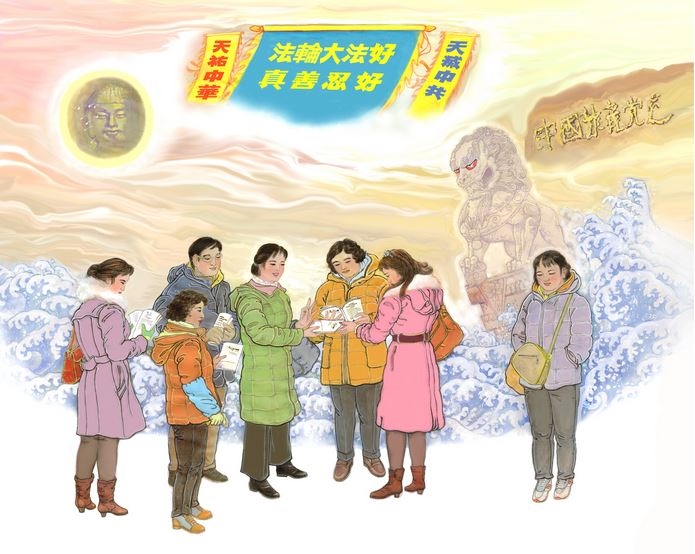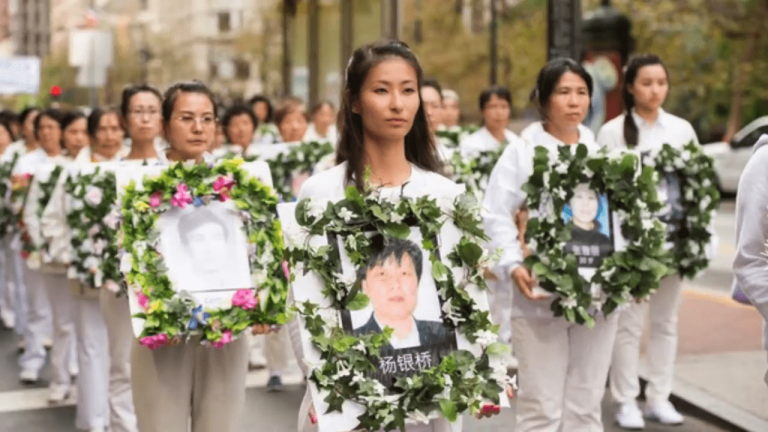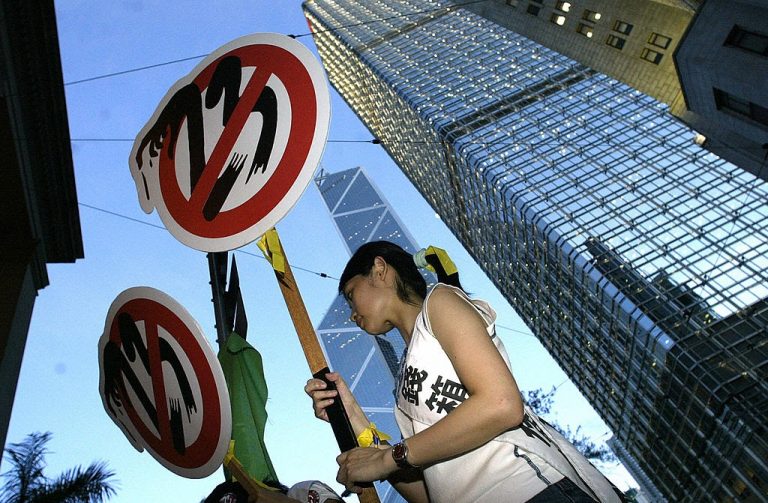The first half of the six-part World Summit on Combating and Preventing Forced Organ Harvesting, held online, concluded on Sept. 19, drawing a large audience with over 200,000 view, brought together professionals from around the world in the fields of medicine, law, academia, law, and politics who presented stirring speeches and participated in live Q&A sessions.
Session 1
Transplant medicine at a crossroad: an ethics-based profession usurped and repurposed for genocide
Medical professionals from Taiwan, Germany, Ireland, and the United States agreed that organ harvesting from non-consenting prisoners of conscience in China is a gross violation of internationally accepted human rights and medical ethics. The medical profession should be guided by altruistic ideals rather than financial gain. The global medical community is called upon to choose between ethical action or complicity in crimes against humanity.
Dr. Raymond Scalettar, MD, Professor Emeritus, George Washington University, and former Chair of the Board of Trustees of the American Medical Association (AMA), pointed out serious ethical concerns that were raised when the Annals of Surgery published an article by Chinese transplant surgeons who found matching lungs for an elderly COVID-19 pneumonia patient in only 3 to 4 days.
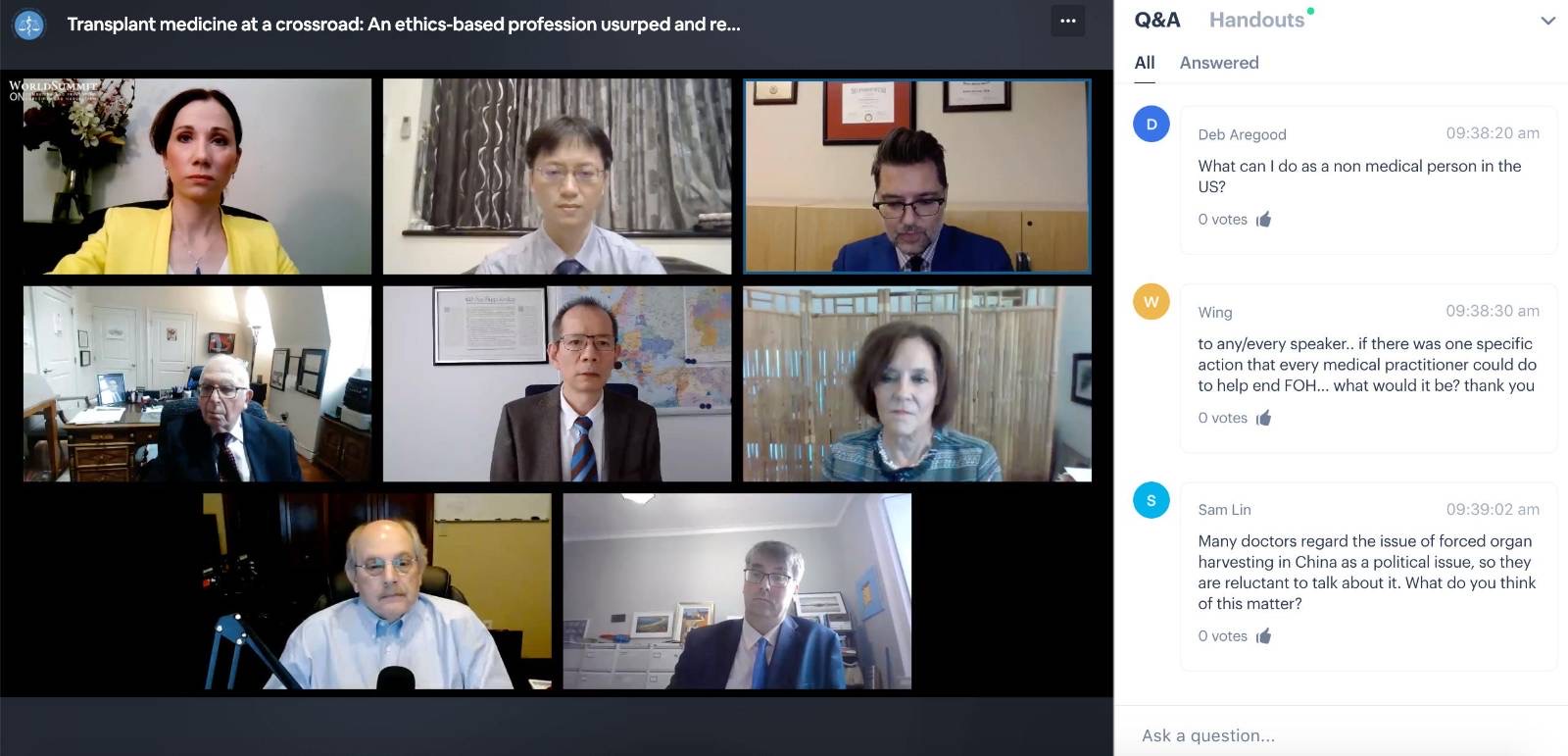
“In the United States, with a huge registry of transplant donors much larger than China, the minimal wait time for this type of donor… is 15 days.”
Since 2000, China has developed a highly lucrative organ transplant industry that is an opaque system with no transparency or traceability. The actual number of transplant surgeries performed far exceeds official government national statistics. There are many large major hospital centers that rely on organ transplants as the main source of revenue.
Success
You are now signed up for our newsletter
Success
Check your email to complete sign up
Shi-Wei Huang, MD, Director of Urology, Taiwan University Hospital, Yunlin Branch, Taiwan, said that transplant tourism from Taiwan began in the 1990s with patients going to China to receive kidney transplants. Those numbers increased rapidly after 2000 though, soon after the onset of the persecution of Falun Gong in 1999, with patients flocking to China from Taiwan as well as from South Korea, Japan, Southeast Asia, the Middle East, and Western countries.
Dr. Huang said, “In China, as long as human rights violations persist and the CCP remains opaque about information and data, transplant abuse is unlikely to disappear.”
Session 2
Pursuing accountability for forced organ harvesting
Legal experts from Canada, South Korea, Spain, and Taiwan discussed the legal precedents of past and current efforts to combat live forced organ harvesting. They recommended that countries unite in their efforts to pursue legislative action to stop China’s transplant atrocities and punish perpetrators and accomplices.
David Matas, world renowned for being among the first to research and expose China’s mass killing of prisoners of conscience for their organs, gave an overview of the legal landscape surrounding transplantation in China. “The rule of law does not exist in China. Instead of the rule of law, there is the rule of the Party.”
Judge Kim Song of South Korea argued that the most available and convenient measure for countries around the world to use against China’s forced organ harvesting is the Magnitsky Act.
The 2016, the Global Magnitsky Human Rights Accountability Act authorized the U.S. government to sanction foreign persons implicated in human rights abuses anywhere in the world, freezing any U.S. assets they hold, and banning them from entry into the United States.
Theresa Chu, a Taiwanese barrister, noted that “Forced organ harvesting is not only used to carry out the cleansing and genocide of Falun Gong practitioners and ethnic minority groups, such as Uyghurs, but is also implicated in massive economic profits from organ transplantation, transnational organ sales, transplant tourism, and organ brokerage.”
Session 3
Politicians, as the stewards and leaders of society, have a responsibility to combat forced organ harvesting
Government leaders and policymakers from Sweden, France, Spain, the United Kingdom, and the United States unanimously condemned and called for an end to China’s human rights abuses, particularly the regime’s state-sponsored forced organ harvesting of prisoners of conscience, and stood united in advocacy for the global adoption of accepted human values and ethical norms.
Steve Chabot, U.S. Congressman from the State of Ohio, said that, “The public overall is mostly unaware of this horrific practice, much less than it occurs on a vast scale.”
He concluded that “a world that conforms to the values of the CCP is one in which those who don’t tow the party line can be put in a concentration camp or have their organs harvested. That’s a vision for a world that nobody wants to live in. And that’s the vision of the world that we are all fighting against.”
The Summit will continue starting Friday, Sept. 24 and will end Sept. 26 with the launch of a new Universal Declaration on forced organ harvesting.
Founded in 2006, Doctors Against Forced Organ Harvesting (DAFOH) raises awareness and informs the medical community and society about the unethical organ harvesting, with a particular focus on China.



